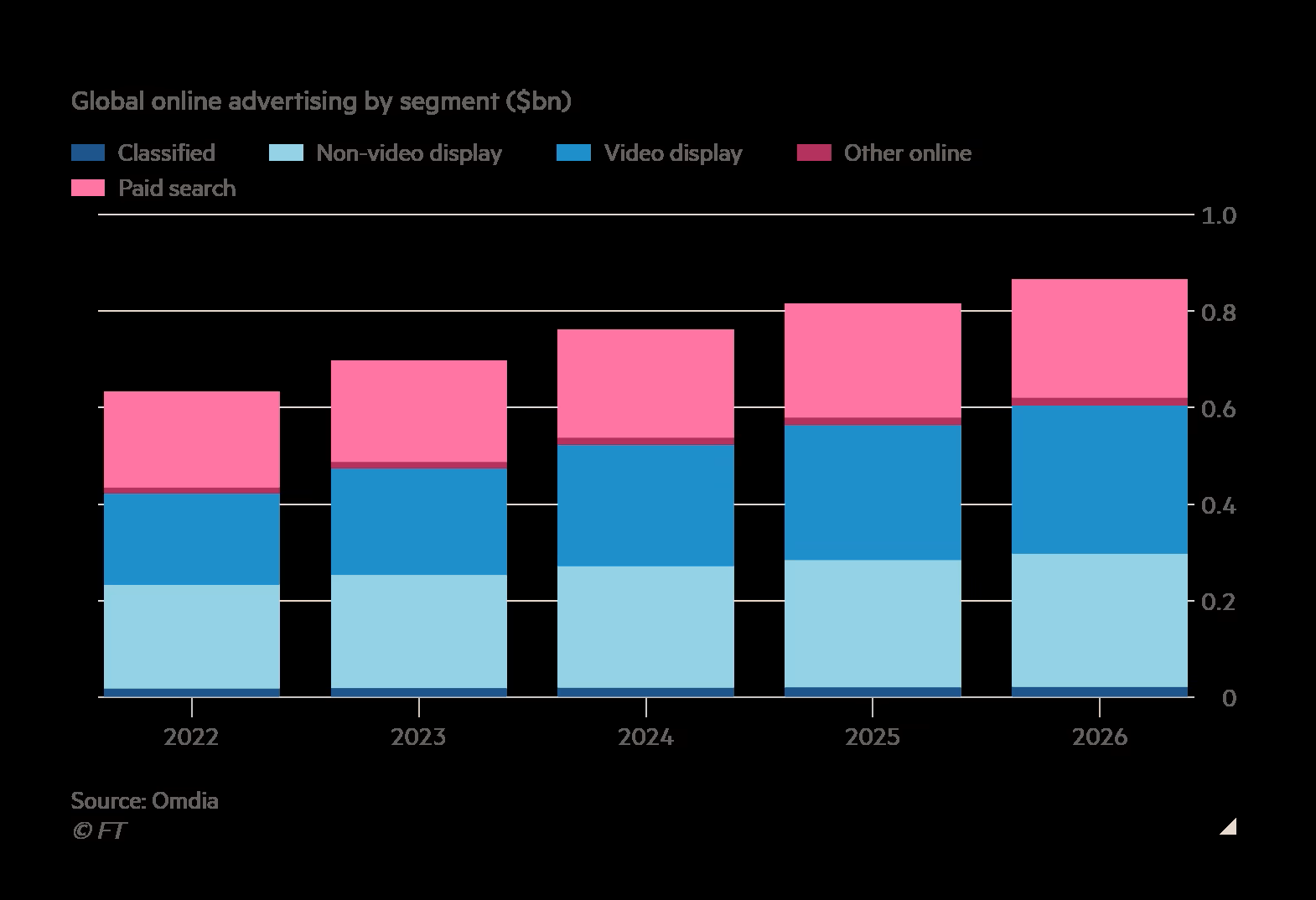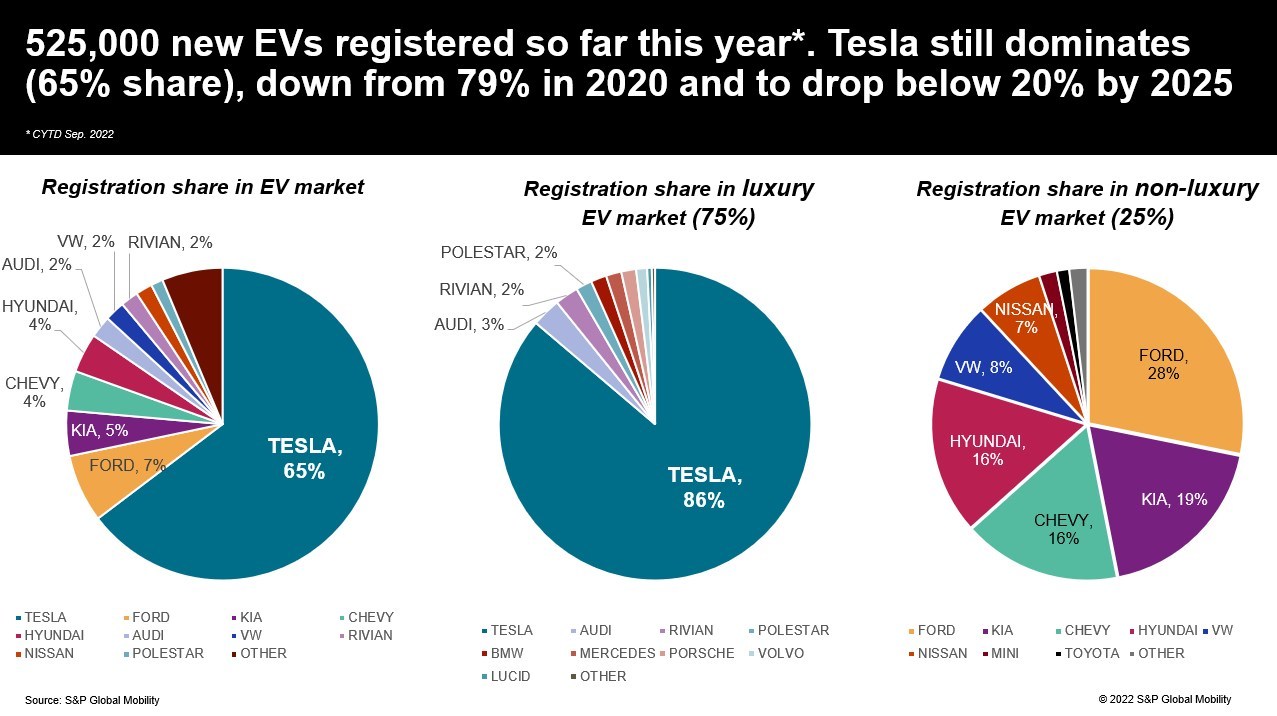Big Tech Anticipates Advertising Revenue Dip Due To Tariffs

Table of Contents
Impact of Tariffs on Global Advertising Spending
Tariffs, essentially taxes on imported goods, create a ripple effect throughout the economy. By increasing the cost of goods and services, they reduce consumer purchasing power. This reduction in consumer spending directly translates to decreased advertising budgets across various sectors. Companies facing higher production costs due to tariffs are less likely to invest heavily in marketing and advertising campaigns.
- Increased production costs due to tariffs: Higher import costs force businesses to raise prices, impacting profitability and potentially reducing marketing budgets.
- Reduced consumer confidence and discretionary spending: Uncertainty in the market leads consumers to curb spending on non-essential goods and services, impacting the ROI of advertising campaigns.
- Businesses prioritizing cost-cutting measures, including advertising: In a challenging economic climate, advertising is often one of the first areas where companies cut back to protect their bottom line.
- Shift in consumer behavior towards more affordable alternatives: Consumers may switch to cheaper brands or products, further diminishing the effectiveness of advertising for some companies.
Industries heavily reliant on imports, such as manufacturing, retail, and automotive, are particularly vulnerable. These sectors are likely to significantly reduce their advertising expenditure, impacting the revenue of major tech companies that depend on these industries for ad revenue.
Specific Big Tech Companies Affected and Their Response
The impact of tariffs on advertising revenue isn't uniform across the tech landscape. Companies heavily reliant on advertising revenue, such as Google, Meta (Facebook), and Amazon, are particularly vulnerable. These giants are now strategizing to mitigate the potential fallout.
- Google's reliance on advertising revenue and potential strategies: Google's search and other services heavily depend on advertising revenue. Their response might involve optimizing ad platforms for efficiency, focusing on higher-value ad placements, and exploring alternative revenue models.
- Meta's (Facebook) advertising model and its vulnerability: Meta's business model is almost entirely reliant on advertising. Reduced advertiser spending will directly affect their revenue. They may focus on improving ad targeting and engagement to maximize the value of existing advertising budgets.
- Amazon's advertising platform and the impact of tariffs on its marketplace: Amazon's advertising platform benefits from the high volume of sales on its marketplace. Tariffs impacting consumer spending could reduce sales, indirectly affecting its advertising revenue. They might explore offering more competitive pricing and promoting deals to boost sales.
- Potential diversification strategies by tech companies: Facing potential revenue shortfalls, Big Tech companies may accelerate diversification efforts, investing in new technologies, developing subscription models, and exploring new market segments less affected by tariffs.
Alternative Revenue Streams and Future Outlook
The potential dip in advertising revenue compels Big Tech to explore alternative revenue streams. This could involve a shift towards subscription models for premium services, expansion into less tariff-affected markets, and further investment in innovative technologies that generate independent revenue.
- Subscription models and premium services: Offering premium, subscription-based features can reduce reliance on volatile advertising income.
- Expansion into new markets less affected by tariffs: Diversifying geographically can mitigate the impact of localized economic downturns.
- Investment in new technologies to diversify revenue: Developing and deploying new technologies, such as AI or cloud computing solutions, creates new revenue channels.
- Potential for mergers and acquisitions to consolidate market share: Consolidation through mergers and acquisitions can help companies achieve economies of scale and withstand market fluctuations.
The long-term outlook for advertising revenue is uncertain, heavily reliant on global trade stability and the trajectory of tariff policies. Continued trade tensions pose a significant risk to the growth of the digital advertising sector.
The Geopolitical Implications of Tariffs on Tech Advertising
The impact of tariffs extends far beyond individual companies. Trade disputes and retaliatory tariffs create instability in the global advertising ecosystem. This leads to regionalization of advertising markets, increased scrutiny of cross-border data transfer, and impacts innovation and competition within the tech sector.
- Trade wars and their consequences for global advertising: Escalating trade tensions create uncertainty and negatively affect global advertising spending.
- Regionalization of advertising markets: Companies may focus on regional markets, reducing reliance on international trade and potentially leading to fragmented advertising landscapes.
- Increased scrutiny of cross-border data transfer: Data privacy concerns and regulations may become more stringent, impacting data-driven advertising strategies.
- Impact on innovation and competition within the tech sector: Trade restrictions can stifle innovation and competition, potentially leading to less diversity and higher prices for consumers.
Conclusion: Big Tech Anticipates Advertising Revenue Dip Due to Tariffs - What's Next?
The anticipated dip in Big Tech advertising revenue due to tariffs presents a significant challenge to these industry giants. Their responses, ranging from diversification strategies to exploring alternative revenue streams, will shape the future of the digital advertising landscape. The impact extends globally, affecting international trade relationships and potentially reshaping the global advertising ecosystem.
To stay informed about the evolving impact of tariffs on Big Tech advertising revenue and the broader economy, it's crucial to stay updated on industry news and analysis. Consider subscribing to relevant newsletters or following leading economists and industry experts to gain a deeper understanding of this critical issue. Understanding the intricacies of "Big Tech advertising revenue" and its sensitivity to trade policies is crucial for navigating the complexities of the global economy.

Featured Posts
-
 Nyt Spelling Bee Solution For February 26th Puzzle 360
Apr 26, 2025
Nyt Spelling Bee Solution For February 26th Puzzle 360
Apr 26, 2025 -
 Chinas Impact On Bmw And Porsche Market Share And Future Outlook
Apr 26, 2025
Chinas Impact On Bmw And Porsche Market Share And Future Outlook
Apr 26, 2025 -
 Shedeur Sanders Nike Loyalty Staying True To The Family Legacy
Apr 26, 2025
Shedeur Sanders Nike Loyalty Staying True To The Family Legacy
Apr 26, 2025 -
 Los Angeles Palisades Fire A List Of Celebrities Who Lost Properties
Apr 26, 2025
Los Angeles Palisades Fire A List Of Celebrities Who Lost Properties
Apr 26, 2025 -
 Restaurant Zuem Ysehuet Nouvelle Ere A Strasbourg Avec Guillaume Scheer
Apr 26, 2025
Restaurant Zuem Ysehuet Nouvelle Ere A Strasbourg Avec Guillaume Scheer
Apr 26, 2025
Latest Posts
-
 Controversial Appointment Hhs And The Debunked Autism Vaccine Connection
Apr 27, 2025
Controversial Appointment Hhs And The Debunked Autism Vaccine Connection
Apr 27, 2025 -
 Immunization Autism Link Study Vaccine Skeptics Leadership Sparks Debate
Apr 27, 2025
Immunization Autism Link Study Vaccine Skeptics Leadership Sparks Debate
Apr 27, 2025 -
 Vaccine Skeptic Leading Federal Autism Immunization Study A Troubling Appointment
Apr 27, 2025
Vaccine Skeptic Leading Federal Autism Immunization Study A Troubling Appointment
Apr 27, 2025 -
 Eliminacion De Paolini Y Pegula En El Wta 1000 De Dubai
Apr 27, 2025
Eliminacion De Paolini Y Pegula En El Wta 1000 De Dubai
Apr 27, 2025 -
 Dubai Dice Adios A Paolini Y Pegula En El Wta 1000
Apr 27, 2025
Dubai Dice Adios A Paolini Y Pegula En El Wta 1000
Apr 27, 2025
